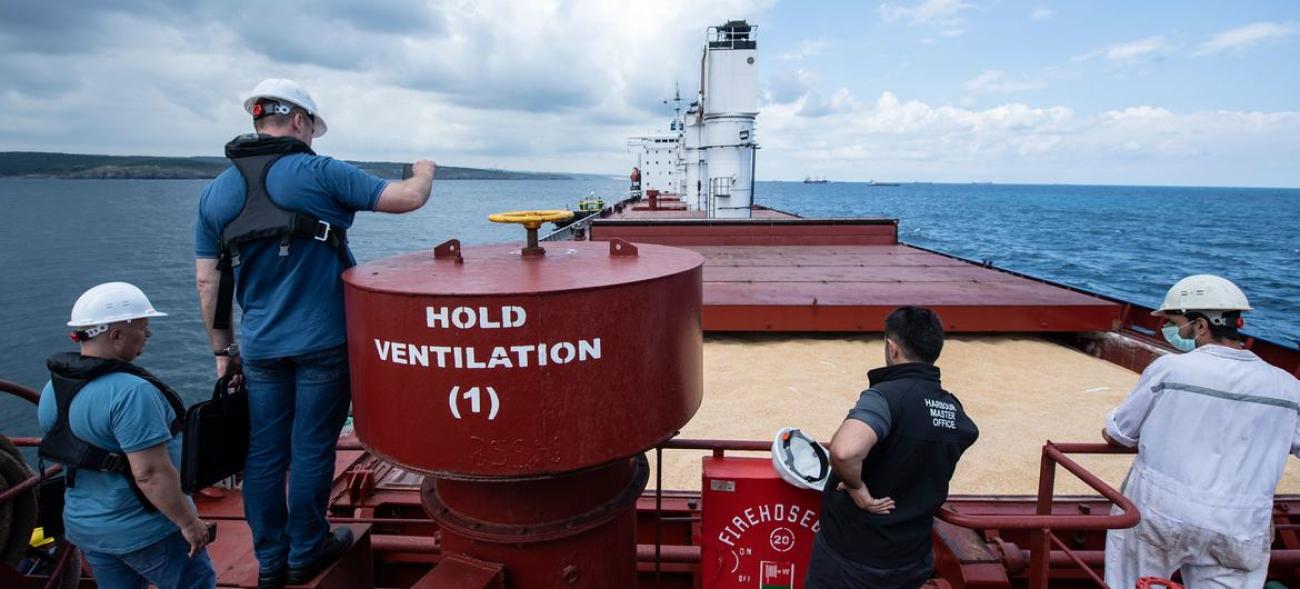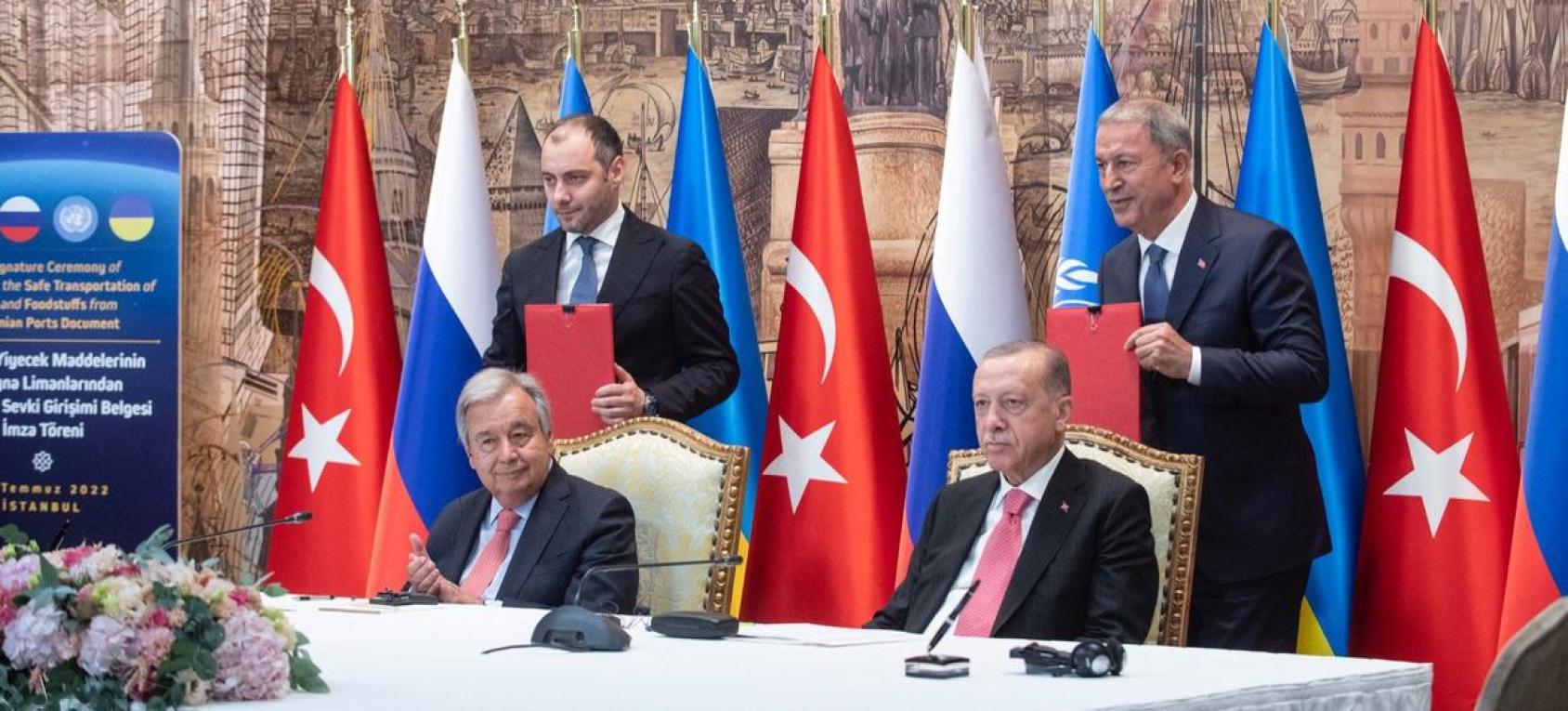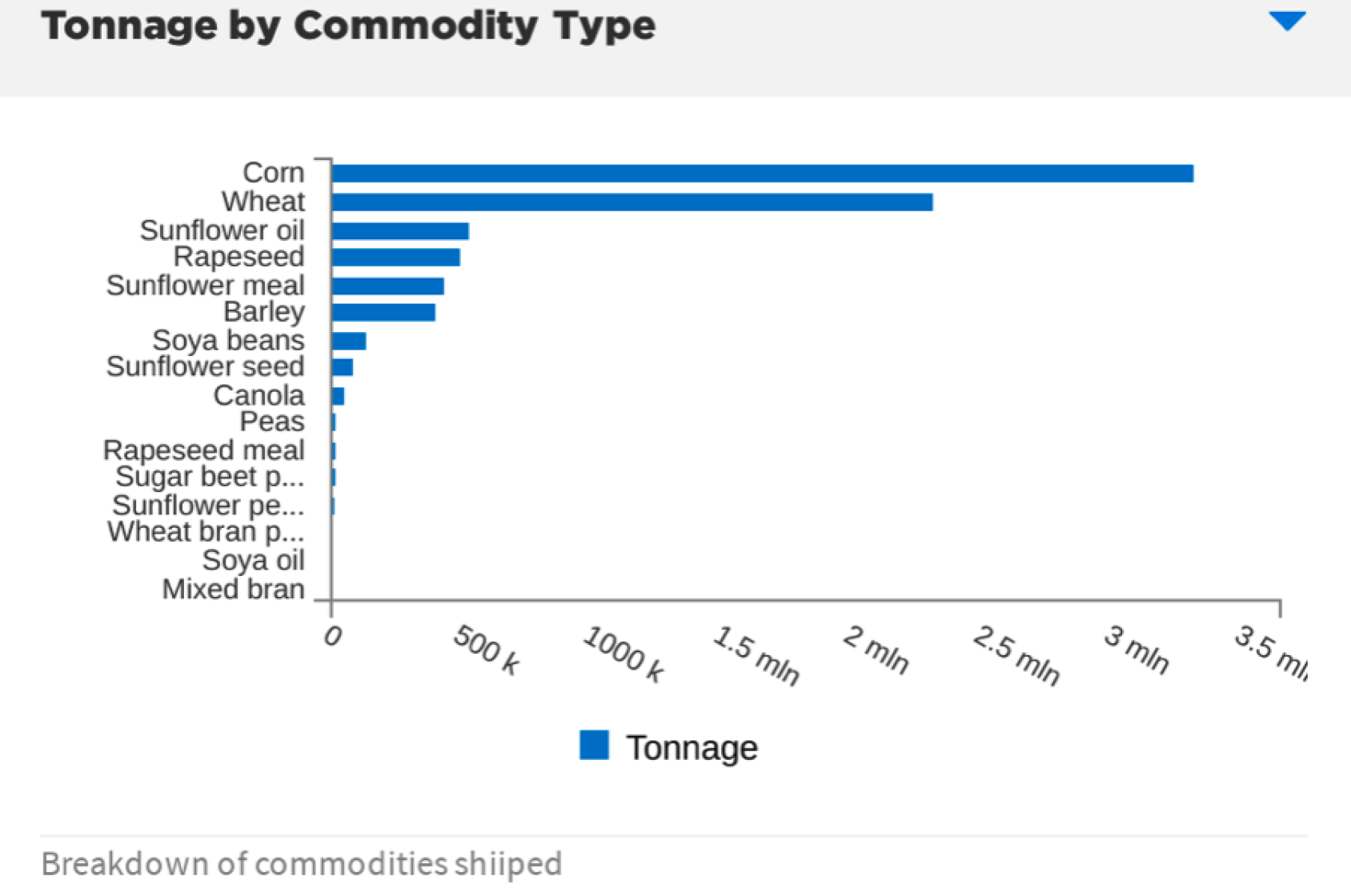Three months into the Black Sea Grain Initiative: What’s been achieved — and why it’s important

Today marks three months since the signing of the Black Sea Grain Initiative – an agreement between Russia and Ukraine brokered by the United Nations and Türkiye to resume vital food exports from Ukrainian ports to the rest of the world amid the ongoing war there.
Behind the scenes of the Black Sea Grain Initiative
Before the war, Ukraine was a key exporter of food commodities, supplying more than 45 million tons of grain yearly to the global market. However, Russia's naval blockade of Ukrainian ports during its invasion left mountains of grains built up in silos, and prevented ships from passing to and from Ukrainian ports.
This blockade sent food prices soaring and exacerbated the existing global food crisis, which disproportionally affected developing countries due to their heavy reliance on imported grain and fuel. As a result, 47 million people around the world have been pushed into "acute levels of hunger".
To release millions of metric tons of Ukrainian grain onto global markets and import-dependent countries, the UN, the Russian Federation, Türkiye and Ukraine signed into agreement the Black Sea Grain Initiative in Istanbul on 22 July 2022. It was agreed to resume the exports through a newly-established humanitarian sea corridor from three key Ukrainian ports: Chernomorsk, Odesa and Yuzhny.

To implement and monitor the deal, the parties established the Joint Coordination Center (JCC) in Istanbul on July 27. Comprised of senior representatives from Türkiye, the Russian Federation, Ukraine, and the UN, the JCC ensures that every cargo and crew meet the requirements of, and is consistent with, the terms of the Initiative.
The UN country team's role
The UN country team in Türkiye, under the leadership of Resident Coordinator Alvaro Rodriguez, played a “small but significant role” in support of the Initiative and the JCC.
“We convened UN leadership in the JCC with member states in Ankara to discuss issues of shared interest”, said Resident Coordinator Rodriguez.
These include topics such as the impact on lowering food prices, shares going to low-income countries, and the necessary measures to “ensure the continuation of the initiative after the first 120 days,” he continued, adding that the team also learnt about the “day-to-day issues confronted by the JCC to ensure the safety and security of the ships navigating the corridor amidst the war.”
UN Türkiye also supports the JCC on several other aspects, including communications and reaching out to local media to enhance knowledge and support for the Initiative.
What is Ukraine exporting and where is it going?
The first vessel – carrying more than 26,000 metric tons of corn – left the port of Odesa on August 1. Since then, more than 360 ships carrying 8.1 million metric tons of agricultural goods have departed from key Ukrainian ports.
Nearly 25 per cent of all exports (over 1.8 milion metric tons) have since went to low and lower-middle income countries with vulnerable populations. Some 25 per cent of grain has gone to upper-middle income countries, and the rest went tohigh-income countries. Corn is by far the most exported grain, comprising nearly 43 per cent of overall cargo, followed by wheat, and sunflower oil.
(A detailed breakdown of the vessels, recipient countries, and shipped commodities is available on the OCHA portal.)

Calming the markets
Renewed grain exports have already benefited people in need by helping to calm the markets and limit food price inflation: The Food Price Index, published by FAO, has shown that the prices of global food staples have declined in recent months – by about 8.6 per cent in July, 1.9 per cent in August, and 1.1 per cent in September.
The Black Sea deal helped stabilize and lower global food prices and “move precious grain from one of the world’s breadbaskets to the tables of those in need... But without the initiative, there is little hope for providing food stability, especially in developing and least developed countries”, states a UNCTAD report published on 20 October.
The future of the grain deal
The Black Sea Grain Initiative is due to expire in the second half of November. It may be extended beyond the initial 120 days, but only with the agreement of all parties.
Earlier this week, UN Under-Secretary-General of Humanitarian Affairs Martin Griffiths and the Secretary-General of UNCTAD, Rebeca Grynspan, discussed renewing and expanding the grain corridor through the Black Sea with Russian officials in Moscow.
The UN Coordinator for the Black Sea Grain Initiative, Amir Mahmoud Abdulla, was optimistic that the deal will continue when it comes up for renewal on November 19. The UN Official said he is hopeful that “with the UN's mediation efforts, it won't really be a matter for discussion”.
Drafted and edited by the Development Coordination Office, with thanks to our UN Türkiye colleagues for their inputs.
To learn more about the UN team’s work in Türkiye, visit: Turkiye.UN.org





































